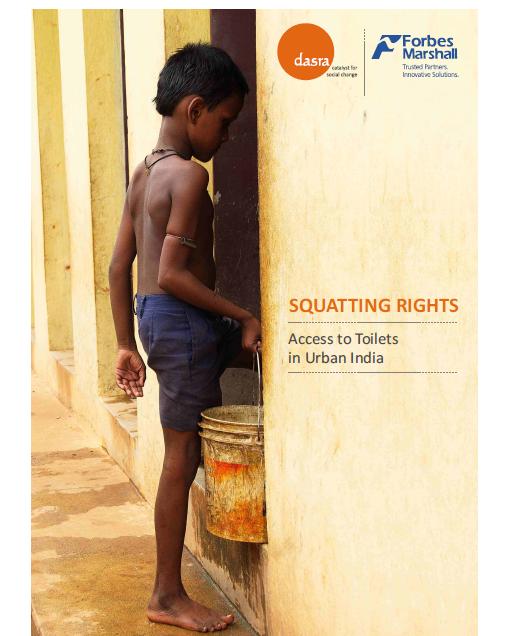/topics/iec
IEC
Squatting rights Study by Dasra highlights the issue of access to toilets in urban India
Posted on 22 Nov, 2014 10:30 AM Dasra, a strategic philanthropy foundation in collaboration with Omidyar Network and
Dasra, a strategic philanthropy foundation in collaboration with Omidyar Network and
The Nirmal Bharat Yatra Stop 1 Day 1 in Wardha Rain washed our tents but not the Great WASH Yatra
Posted on 22 Nov, 2014 10:30 AM3rd October 2012, Wardha, Maharashtra.
The Nirmal Bharat Yatra Breaking the Menstrual Taboo in rural Maharashtra
Posted on 22 Nov, 2014 10:30 AMWomen in India are treated as untouchables or even worse during their menstrual cycle. Have we ever stopped to think why we let this happen? Why are we constantly victimizing women when this is a routine procedure that women go through to complete their womanhood?
The Nirmal Bharat Yatra Stop 1 We dont talk about it at all The taboo of menstruation in rural Maharashtra a major deterrent in achieving menstrual hygiene
Posted on 22 Nov, 2014 10:30 AMPriyanka, 13 and a chirpy adolescent girl studying in a government school in a village called ‘Rohini Gaun’ 25 kms from Wardha in Maharashtra blushes and says, "We don’t talk about it at all!".
The Nirmal Bharat Yatra The Great WASH Yatra A travelling carnival over 6 weeks spreading awareness on sanitation hygiene in India
Posted on 22 Nov, 2014 10:30 AMThe Nirmal Bharat Yatra, also called the The Great WASH Yatra is a multichannel, mega-campaign that harnesses the positive power of Cricket and Bollywood to promote awareness and enact behavioural change around sanitation and hygie
Water sanitation and hygiene advocacy and communication strategy framework 2012-2017: A draft document by Ministry of Drinking Water and Sanitation
Posted on 22 Nov, 2014 10:30 AMThis document by Ministry of Drinking Water and Sanitation is a draft of the WASH advocacy and communication strategy 2012-2017.
Exploring the change in communication in sanitation An Arghyam consultation held on 1 August 2012
Posted on 22 Nov, 2014 10:30 AMArghyam, which works in the areas of domestic water and sanitation, has decided to look more closely at the sanitation space to identify certain areas where it can work towards attaining total sanitation in rural areas of India.
Empowerment through action: The story of Anna Lakshmi
Posted on 22 Nov, 2014 10:30 AMThis article shows how women are catalysts for advocating widespread improved sanitation and – at the same time – reap substantial benefits in a program promoted by an NGO called Gandhigram Trust. The empowerment of women and marginalized populations is a vital step in realizing gender equality – equal access, planning, and management – for water and sanitation.
Village of tomorrow village of today Sanitation justice in Tamil NaduA photo essay
Posted on 22 Nov, 2014 10:30 AMA woman who brought toilets education and compassion to her village The story of Anna Lakshmi of Tamil Nadu
Posted on 22 Nov, 2014 10:30 AMPriyadarshini, or Priya to friends, wanders inquisitively around a large cement pad where a group of about thirty women and men are gathering to create a map of their village using a colored chalk powder called Rangoli.





